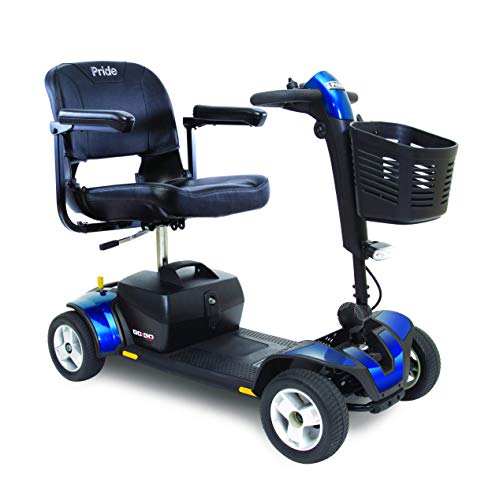What Is Personal Transportation?
Private transportation is the private use of private transportation vehicles. This includes bikes, cars or scooters as well as unicycles. It can also refer the use of public transportation systems.
Private transportation can save you time and help you get to your destination. Furthermore, private transport is more comfortable and offers privacy that's not offered on public transportation.
Cost
The expense of personal transportation can be a big burden for many families. This can make it hard for them to invest or save money in other areas. Fuel can be a costly expense. There are methods to reduce your transportation costs.
Despite these benefits, many people still prefer private transport for their commute. They believe that it is the most comfortable and convenient way to get around. Some people prefer traveling with their chauffeur. The cost of this type of transport is typically higher than public transportation, however it can provide greater peace of mind and comfort.
As EVs benefit from advances in battery technology as well as charging infrastructure and other aspects, the future of personal transport is likely to be electric. EVs are also more accessible and emit less carbon dioxide than conventional cars. This will allow a lot of people to make the switch from gasoline cars to electric vehicles which will reduce GHG emissions and traffic congestion.
Public transportation has numerous advantages and can be a great alternative to private transportation. Compared to private vehicles, mass transit is cheaper and is more eco-friendly. It is also convenient and equipped with cameras to ensure passenger security. It can also help users avoid parking fees and maintenance. The biggest drawback of public transport is that it can sometimes be slow and unpredictable. Transporting children or the elderly can be difficult. This can cause delays and result in the cancellation of a medical appointment.
Time is a major factor.

The time required to complete a personal transportation task can impact the lives of people. For instance, commuting to work takes often too much time for people who have a busy schedule. The option of carpooling, working from home or in close proximity to their workplace can help people cut down on the time they spend commuting. They can also save time by walking or riding a bike instead of driving.
The advancement of technology could revolutionize personal transport. Electric vehicles that have solid state batteries are an example. indoor electric mobility scooter offer a longer range and quicker charging times. These technologies can also increase safety and reduce traffic congestion by optimising traffic management. Autonomous vehicles are a further advancement that will make traveling more convenient and comfortable. They can even help people maintain their fitness by keeping them active.
You can also learn more about Privacy.
Privacy is a crucial aspect of personal transport. People who want to keep their privacy in mind prefer to ride or drive in their own cars, instead of taking public transport in which they share their space with strangers. Public transport is also perceived as less secure and can have a negative impact on the safety of your family members. This is particularly relevant for people who are elderly who are more susceptible to security concerns.
The lack of privacy could be a major problem for those who travel with children. Sharing the same space as other passengers can be a stressful experience for children, and could cause behavioral issues like aggression and hyperactivity. Parents are increasingly opting for private transportation to protect their children’s privacy. This can also reduce the stress of traveling with children, as well as the amount of time spent on commuting. This will reduce the cost of childcare.
Convenience
Using personal transport is a vital aspect of everyday life, but the choice you make can have a significant impact on your health and wellbeing. It is essential to consider the pros and cons of each option before deciding what mode of travel best fits your needs.
Some people prefer public transportation because it is cheaper and requires less maintenance than private transport. It also has a less impact on the environment because it releases less carbon dioxide per person. It can also save you the cost of parking and fuel, while allowing more convenience and flexibility during your daily commute.
However public transport is not reliable and there are a few dangers associated with it. In some cases you may be exposed to criminals or not be able to get to your destination on time due to weather or mechanical issues. In addition, many bus and train routes are crowded making it difficult to move around and relax.
On the other side, private transportation is a great option to travel in comfort and privacy. Private transportation is quicker than public transportation, and you avoid crowds in a private vehicle. It is also more convenient to travel in an individual vehicle rather than an automobile because you are able to pick your own route.
Despite these benefits, the majority of people choose to make cars their primary mode of transportation. This could be due to the fact that they are more comfortable or because they have a greater value of resales. In the future we can anticipate an enormous change in personal transportation, as electric vehicles (EVs) become cheaper and easier to charge.
In a recent research, researchers from MIT looked into what factors influence people's choices for modal transportation. They found that while safety is a major factor, it does not play a major role in determining modal choice. In reality the most important factors are availability, speed, and cost. This is consistent with previous studies of modal choice and is likely to persist for a long time. In the same way the battery technology that makes use of solid state batteries could enhance the efficiency of EVs, allowing them travel longer distances while making use of the same amount of power.
